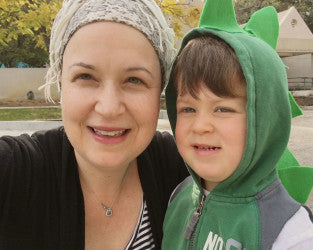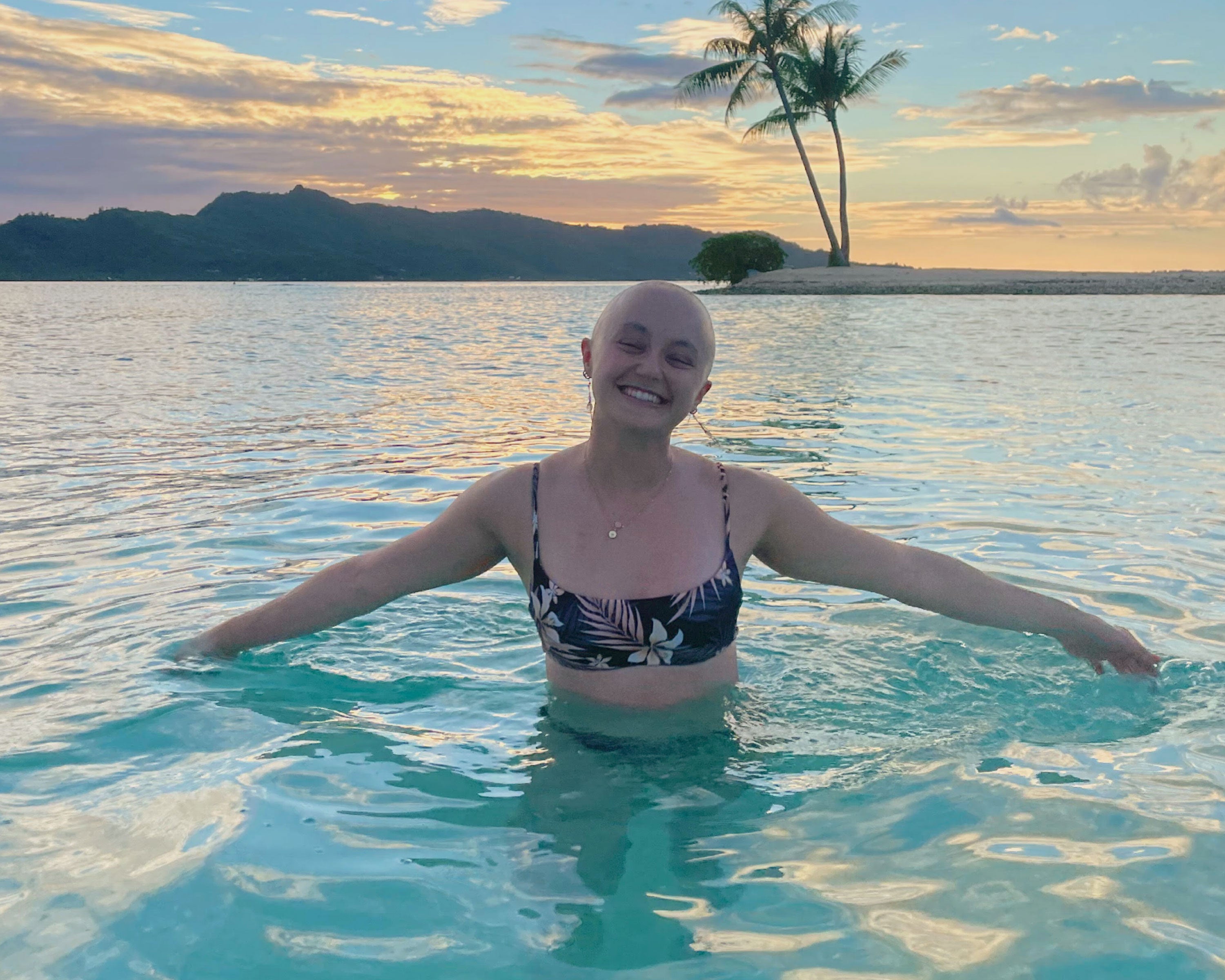Real Talk
The No-Guilt Guide to Second Opinions, Setting Boundaries, and Asking For What You Need
By Elizabeth S. Bennett
Share
Elizabeth S. BennettSpeaking up for yourself and asking for what you need isn't always easy or comfortable. But when it comes to cancer, your life could literally depend on it. Here, Elizabeth S. Bennett shares the ways she had to be her own advocate after her breast cancer diagnosis — and how you can do the same, without any guilt.
Always seek a second opinion, even if your doctor doesn't suggest it.
My initial diagnosis was Stage 0, DCIS or noninvasive ductal carcinoma in situ. The doctor, an oncology surgeon, took a really surgical approach. She recommended a bilateral mastectomy, but told me I likely wouldn’t need chemotherapy or radiation.
I went to see another doctor for a second opinion, and he wanted to do more biopsies. I asked if we could avoid that, because for me, biopsies were really painful. He insisted that we had to. A few days after the additional biopsies, I got the call: it wasn’t just DCIS — I actually had an invasive tumor and it was positive for estrogen, progesterone and HER2. I was just so grateful that I had gone to get a second opinion!
I loved the first doctor. I thought she was warm, smart and direct. But it turns out she probably wasn’t as thorough as she needed to be. People, especially women, often feel bad about getting a second opinion — especially if they like their doctor. We wouldn't think twice about getting a second opinion on a plumbing job, but when it comes to something that affects our possible mortality, we feel bad! Luckily, I had received some coaching from my friend's husband who’s a reconstructive surgeon: He said to me, “If your surgeon is in any way upset or irritated, he or she is not the person for you. In fact, they should be encouraging you to get a second opinion.” And that really helped me.
From that point on, my philosophy was, “I'm picking everybody.” I met with three oncologists and three reconstructive surgeons, and by getting second and third opinions, it became clear to me who my person was.
Call your oncology nurses as often as you want or need.
The first few rounds of chemo were really rough, and one lesson I learned is this: Don't be shy about calling the oncology nurses as often as you need to. I had really bad “chemo diarrhea” for a few days, and when I finally talked to them, they said, “Oh, you can take three times more of this anti-diarrhea medicine.” It seemed like so much, but I tried it, and it helped. I just wished I’d asked earlier. My advice? If there are dramatic shifts and you need advice, don't feel bad about calling the nurses. Call multiple times if you need to. That's what they're there for.
Another time I was really having trouble sleeping, so I called my doctor’s office for advice, and got the recommendation (and a prescription) to try medical marijuana. I was not interested in getting high; I just really needed to sleep. The dispensary helped me find a CBD THC tincture, and that combined with acupuncture changed everything.
No question is too small or silly. When chemo changed my taste, everything tasted metallic. I asked what I could do about it and was advised to take these electrolyte tablets called Nuun that you can dissolve in your water. I really liked the citrus flavor, which helped neutralize that metallic taste.
Avoid people who tell you “It’s going to be fine.”
Telling people “it's going to be okay” is just not helpful. I think it comes down to mental preparation: if you expect the worst, it kind of helps you to manage your own expectations.
For example, the period from detection to diagnosis for me was a long stretch, which was horrible. I remember somebody telling me, “This limbo period is the worst part.” And for me that was really true, and it was helpful to have that acknowledged. All that uncertainty creates so much stress. In my case, even if it wasn't a great diagnosis, it was better than not knowing. When you don’t know, you can't have a plan. And there’s a feeling of control once you can make a plan.
Prepare yourself for out-of-touch comments from acquaintances and strangers.
I went into temple one Friday night, and one of the congregates came up to me to give me a hug and said, “Hold on, honey, what stage are you?” I was in the middle of the service! My doctor and I didn't really talk much about stages, and besides, your stage really changes with the chemo. I think a good rule of thumb is not to ask people there what stage they are. That's very hard for people to answer.
Let your friends know when you’re not up for talking about “what’s next.”
Another thing that was difficult for me was when a good friend of mine who is a real planner always wanted to know, “What’s next?” She was coming from a good place and wanted to get into the weeds on the logistics, but I was just exhausted. I didn’t want to talk about those things. For friends and supporters, there’s this completely understandable desire to ask a lot of questions, but sometimes it’s better to reign in your curiosity and just try to be there with the person.
The truth is, I turned really inward during treatment. I really started to feel antisocial and had to be okay with that. I told myself, “I'm allowed to not want to talk.” But when I did feel up to it, I preferred being in a space with someone where I could talk about the wild mix of emotions that were happening, whether it was the sadness or fear or something else. When friends asked, “how does it feel?,” that felt like a real opening.
This article is for informational purposes only and is not a substitute for medical advice, diagnosis, or treatment. Please keep in mind every individual’s situation is different, and you should not take any actions concerning your body and well-being before consulting with a healthcare professional.
Let your loved ones know what you actually need
Easily add items from the Alula shop to your registry, and share it with friends and family who ask.



